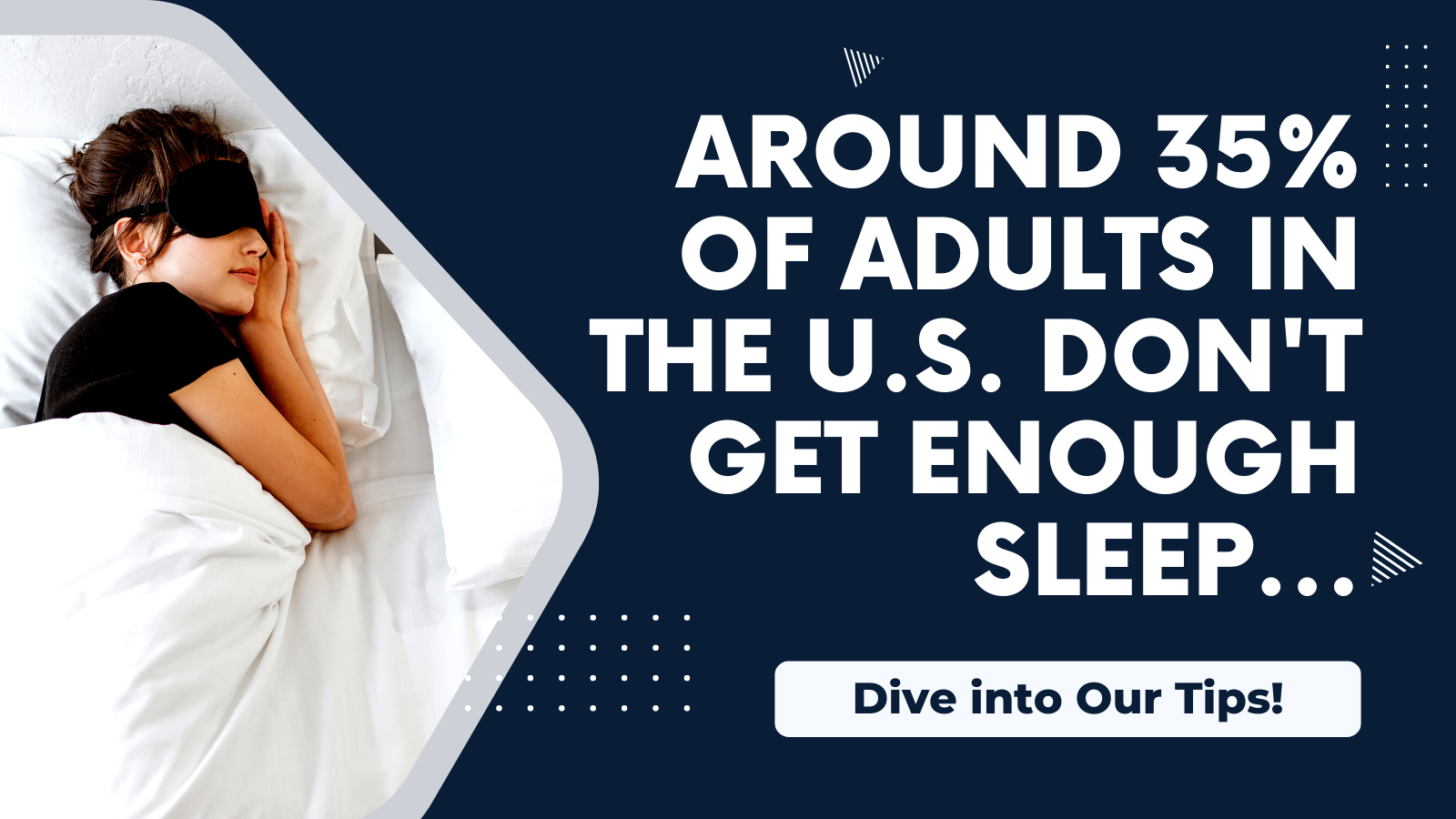Sleep Tips from the EnsoData Clinical Team for Getting Better Sleep this Year, starting during Sleep Awareness Month
If you didn’t already know, March is Sleep Awareness Month! That obviously makes this the perfect time of the year to call attention to the importance of sleep for overall health and well-being. Those in sleep medicine understand the crucial role sleep plays in our physical and mental well being, affecting everything from our mood and energy levels to our ability to concentrate and make decisions. Unfortunately, many people don’t get enough quality sleep, which can lead to a range of health issues. In this sleep awareness month post, the EnsoData clinical team shares tips for getting better sleep in the coming year.
Why is Sleep So Important?
According to the National Sleep Foundation, around 35% of adults in the US don’t get enough sleep. And more than that, around half of all Americans say they feel sleepy during the day at least three days a week. With so many people struggling with their sleep, what are the consequences?

Well, lack of sleep has been linked to a variety of health problems, including obesity, diabetes, heart disease, and depression. Many Americans who struggle with sleep also face an uphill battle when it comes to concentrating during the day and remaining productive throughout the day. Getting better sleep really is a challenge. However, improving sleep habits can go a long way toward improving overall health.
Six Tips for Getting Better Sleep
To improve sleep quality, there are many recommendations, including establishing a regular sleep schedule, avoiding caffeine and alcohol before bedtime, and creating a sleep-conducive environment. That said, let’s dive into several specific tips for getting better sleep from the EnsoData clinical team:
- “Try to keep the same timeframe for bedtime and awakening time during the week AND on weekends.” – Andrea Ramberg, RPSGT, CCSH, EnsoData Clinical Director
- “Watch your caffeine intake! We all need that afternoon pick-me-up, but drinking caffeine too late in the day may impact your ability to fall asleep and stay asleep.” – Tiffany Guthrie, RPSGT, EnsoData Southwest Regional Sales Manager
- “Dim your lights an hour before our bedtime, and start to wind down, and make sure you sleep in DARKNESS. Even the light from an alarm clock is enough to suppress melatonin by about 20 percent.” – Shahnawaz Khan, RPSGT, CCSH, EnsoData Clinical Informaticist
- “Step outside, take a deep breath of fresh air, and expose yourself to sunlight every day (10-15 minutes)! This can help you feel more awake earlier in the day as well as help you sleep better at night.” – Lacey Adams, RPSGT, CCSH, EnsoData Sleep Coach
- “It’s best to leave your cell phone in the kitchen at night. That way you won’t be tempted to look at it if you wake up during the night. The light from the phone is a signal to your brain to wake up. Along the same lines for kids… don’t let them sleep with their phones!” – Jessica Moore, RPSGT, EnsoData Southeast Regional Sales Manager
- “Avoid heavy meals at night and use alcohol cautiously before bedtime. Both can disturb your sleep. Heavy meals can make it difficult to fall asleep and disturb your sleep through the night. Alcohol will make you fall asleep faster but your sleep will be very fragmented and non-restorative as well as the concern of depressing the respiratory system, likely making any sleep disordered breathing you already have even more severe with alcohol.” – Kimi Clark, RPSGT, CCSH, EnsoData Sales Engineer
Improve Your Sleep in 2023
Which tip resonates most with you? What’s your favorite sleep tip for patients? What other suggestions do you give patients who struggle with their sleep? Share this post on social media and tag @EnsoData, and we’d be happy to add to this post! With that, a very happy Sleep Awareness Month to everyone from sleep techs to physicians to patients looking for ways to get a little better sleep this year! Dive into other EnsoSleep related content below.






